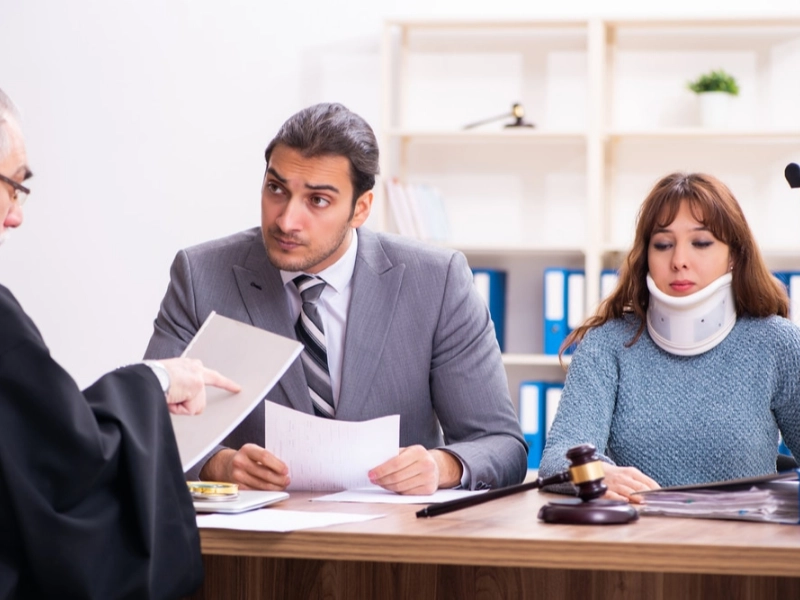Intellectual property can be sold to earn a return on investment, licensed to third parties to diversify revenue streams, or used to raise capital to expand a business. It is essential to know how to safeguard it. Expert witnesses can help jurors and judges who may not have extensive technical expertise by shedding light on complex situations. It is their responsibility to remove obstacles caused by technical jargon.
 A government will issue inventor patents, which are legal rights. For a limited period, they grant the patent holder the right to prohibit others from creating, using, exporting, or selling their invention without authorization in exchange for disclosing the invention's specifics to the general public.
For an innovation to be eligible for patent protection, it must be new, practical, and obscure. Additionally, the creator must give a thorough explanation of their creation and enough specifics so that an expert in the subject could duplicate it without needless experimentation.
National laws, not international treaties, govern the protection of intellectual property through patents. This implies that a patent is exclusively enforceable against infringers inside the nation in which it was filed and is not transferable to other nations. A patent may be contested on grounds outlined in the applicable intellectual property legislation, which differs between nations, in order to be declared invalid. An accused infringer may do this in a counterclaim, which is frequently filed alongside an infringement action.
A government will issue inventor patents, which are legal rights. For a limited period, they grant the patent holder the right to prohibit others from creating, using, exporting, or selling their invention without authorization in exchange for disclosing the invention's specifics to the general public.
For an innovation to be eligible for patent protection, it must be new, practical, and obscure. Additionally, the creator must give a thorough explanation of their creation and enough specifics so that an expert in the subject could duplicate it without needless experimentation.
National laws, not international treaties, govern the protection of intellectual property through patents. This implies that a patent is exclusively enforceable against infringers inside the nation in which it was filed and is not transferable to other nations. A patent may be contested on grounds outlined in the applicable intellectual property legislation, which differs between nations, in order to be declared invalid. An accused infringer may do this in a counterclaim, which is frequently filed alongside an infringement action.
 Words, names, symbols, or designs that set one company's products and services apart from its rivals' are protected by trademark law. In contrast to copyrights, which safeguard "original works of authorship," trademarks provide protection for both material and immaterial goods. For instance, Nike's iconic swoosh logo and Coca-Cola's unique orange colour are both trademarks.
Trademarks not only help consumers identify products and build brand recognition, but they also enable them to swiftly determine the origin of the things they buy. Additionally, they encourage companies to spend money on R&D, which promotes innovation in society.
Although protecting creators through intellectual property law is essential, small business owners may find it challenging to understand. A knowledgeable intellectual property lawyer can assist customers in obtaining and enforcing trademarks, copyrights, and patents. This may entail drafting and submitting applications to the relevant office, reacting to the examining attorney's activities, and, if required, engaging in federal court litigation. Conflicts over infringement pertaining to these assets frequently entail a convoluted interplay of state and federal law.
Words, names, symbols, or designs that set one company's products and services apart from its rivals' are protected by trademark law. In contrast to copyrights, which safeguard "original works of authorship," trademarks provide protection for both material and immaterial goods. For instance, Nike's iconic swoosh logo and Coca-Cola's unique orange colour are both trademarks.
Trademarks not only help consumers identify products and build brand recognition, but they also enable them to swiftly determine the origin of the things they buy. Additionally, they encourage companies to spend money on R&D, which promotes innovation in society.
Although protecting creators through intellectual property law is essential, small business owners may find it challenging to understand. A knowledgeable intellectual property lawyer can assist customers in obtaining and enforcing trademarks, copyrights, and patents. This may entail drafting and submitting applications to the relevant office, reacting to the examining attorney's activities, and, if required, engaging in federal court litigation. Conflicts over infringement pertaining to these assets frequently entail a convoluted interplay of state and federal law.
 Original works of authorship are safeguarded by copyrights, which also grant the owner the exclusive right to distribute, display, and reproduce them. Copyright-protected works include word-and-music musical compositions, poetry, fiction, nonfiction, drawings, architectural designs, sculptures, choreography, dramatic works, and audiovisual presentations like movies. Copyright may also apply to software code.
The foundation of copyright law is the idea that people ought to be compensated for their creative endeavours. Finding the ideal balance between the needs of users and artists is crucial, though.
The most knowledgeable expert witnesses in intellectual property have a thorough awareness of the rules and laws pertaining to copyrights, trademarks, and patents. They can assist in making the legal background of a case more understandable for jurors so they can weigh the concerns. They can also offer insightful explanations of the fundamental ideas of intellectual property law and how they relate to particular situations. Select the most qualified specialist for your requirements by assessing their training, work history, and experience.
Original works of authorship are safeguarded by copyrights, which also grant the owner the exclusive right to distribute, display, and reproduce them. Copyright-protected works include word-and-music musical compositions, poetry, fiction, nonfiction, drawings, architectural designs, sculptures, choreography, dramatic works, and audiovisual presentations like movies. Copyright may also apply to software code.
The foundation of copyright law is the idea that people ought to be compensated for their creative endeavours. Finding the ideal balance between the needs of users and artists is crucial, though.
The most knowledgeable expert witnesses in intellectual property have a thorough awareness of the rules and laws pertaining to copyrights, trademarks, and patents. They can assist in making the legal background of a case more understandable for jurors so they can weigh the concerns. They can also offer insightful explanations of the fundamental ideas of intellectual property law and how they relate to particular situations. Select the most qualified specialist for your requirements by assessing their training, work history, and experience.
 Unfair competition is covered by laws in several jurisdictions. According to these statutes, unfair competition is often defined as behaviour that involves deception, fraud, misrepresentation, and unethical behaviour in commercial transactions and interactions with rival businesses. Activities that belong to a cartel or the abuse of dominance are not covered by these rules; those are the subject of different antitrust statutes.
These kinds of actions can include stealing proprietary information from a rival business or defaming the goods or services of another through deceptive advertising. These actions can also be regarded as breaking laws pertaining to intellectual property rights, such as copyrights or trademark infringement.
These actions are referred to as torts, and they can have a significant negative impact on property. Any civil conduct that causes injury to a person or thing is considered a tort. This damage could be material or immaterial, such as income lost as a result of dishonest business practices by a rival. The field of tort law encompasses a broad spectrum of circumstances and many forms of damages.
Unfair competition is covered by laws in several jurisdictions. According to these statutes, unfair competition is often defined as behaviour that involves deception, fraud, misrepresentation, and unethical behaviour in commercial transactions and interactions with rival businesses. Activities that belong to a cartel or the abuse of dominance are not covered by these rules; those are the subject of different antitrust statutes.
These kinds of actions can include stealing proprietary information from a rival business or defaming the goods or services of another through deceptive advertising. These actions can also be regarded as breaking laws pertaining to intellectual property rights, such as copyrights or trademark infringement.
These actions are referred to as torts, and they can have a significant negative impact on property. Any civil conduct that causes injury to a person or thing is considered a tort. This damage could be material or immaterial, such as income lost as a result of dishonest business practices by a rival. The field of tort law encompasses a broad spectrum of circumstances and many forms of damages.